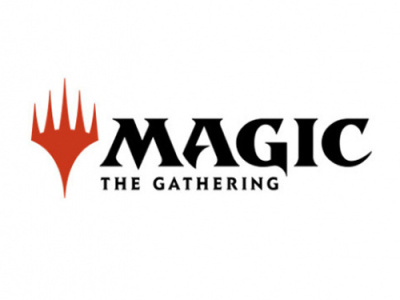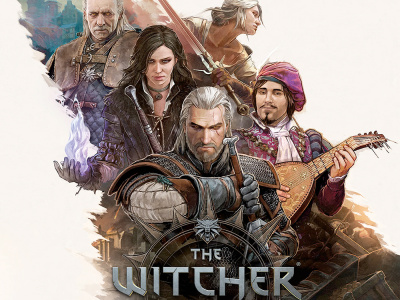In Business 3x3, a business retailer or executive will share their experience with three things they’ve done right, three things they’ve done wrong, and what else they’ve learned along the way.
Bob Seabold had a nice life; a nice career. But after 27 years as a freelancer working in film and video production on everything from Mystery Science Theater to Prince videos to home remodeling shows... well, anything can get old.
"It really burned me out," Seabold says. "I liked the people I worked with, but I really had no stake and no final say in the work I was doing."
Time for some game therapy. Seabold had been a gamer in junior high and high school, largely Dungeons & Dragons and some early Steve Jackson Games. In 2012, Seabold drove past Tower Games in his Minneapolis neighborhood and curiosity brought him in. He met the owners and started a relationship. Later that year, he went to Gen Con, started playing new games, and made new friends.
One of those friends was Seppy Yoon, an experienced game designer. Yoon and Seabold started a new game company, Fight in the Box, which published Squirrel or Die and other games. Then, Seabold’s phone buzzed.
"The owners of Tower Games sent me a text saying, 'Do you want to buy the game store?'" Seabold remembers today. "At one point I had asked about becoming a partner with them, but they weren’t interested at the time."
By 2015, they were interested in selling. Seabold talked to his girlfriend, who encouraged him to go for it. And on December 1, 2015, Seabold became the new owner of Tower Games. Along the way, he’s learned much, found experts, weathered the riots that swept South Minneapolis in the wake of George Floyd’s murder, and more. Just what has he learned? Glad you asked…
THE GOOD
RECOGNIZE HIRING OPPORTUNITES
Hiring anyone is easy, hiring a game-changer is tough, and might even require a bit of luck. Seabold lucked out when Travis came knocking on his door two-plus years ago.
"He used to work for the largest game store in the city here," Seabold says. "He also works for [publisher] Atlas Games. We got to know each other at conventions. For all sorts of reasons, he wanted to leave."
Seabold jumped on bringing Travis into the Tower Games fold, and the hire has been great.
"I was used to having young people as employees who just want to have fun, but to have someone way closer to my age and who also has over 20 years of game experience, working at stores, publishers… I was like, 'Fuck yeah!'"
Seabold also describes Travis as "a Games Workshop fanatic," and has found a way to make that pay off.
"One of the best things I’ve done is give him carte blanche for the Games Workshop section. He tells me what he thinks he needs, and I’m like 'Here’s the budget, go.' I gave him that section."
Games Workshop accounts for about 40% of Tower’s sales, but Seabold sees well beyond just that bottom line.
"The good thing was I was able to recognize an expert, and give him enough to have him work here," he says.
GET OUTSIDE EXPERTS, TOO
Video work on home remodeling shows led to Seabold’s own interest in home remodeling, which led to an important lesson.
"I did a lot of work on my own house and I learned you hire people for the jobs you suck at," Seabold says. "I can frame and sheetrock a room, but I am hiring a mudder and taper. They can do something in two days that would take me a month."
Seabold applied this lesson and found Greg, his accountant. Greg does Tower’s taxes, and much more.
"We meet every Friday for at least an hour," Seabold says. "We talk about the previous seven days of sales, the previous seven days of spending, and the things I’ll be working on to improve and expand. We meet, face-to-face, get a coffee, go out for a beer, and we go over the health of the books, weekly. I think that a lot of stores don’t have that focus."
Seabold considers the close contact to be crucial, and has learned more lessons yet.
"People often get caught up in frugality,” he says. "But when Greg and I talk about stuff, he reminds me, ‘It’s good to be paying taxes. Don’t worry about it. That means you’re making money.’ You have to look carefully at the behaviors you use to avoid paying taxes, because you’re sacrificing income. He really helps me make better decisions."
READ AND RESEARCH
Yes, Seabold was interested in buying into Tower Games pretty much from the jump. But it’s not like he went in blind. He did his legwork, particularly in reading the blog from Gary Ray, owner of Black Diamond Games in Concord, CA. Ray has 15 years of posts all about running a game store, which Seabold found invaluable.
"It’s one of the first things I started reading before I bought the shop," Seabold says. "You see everything. I read every blog post he ever did for years."
Ray’s blog led Seabold to find A Specialty Retailer’s Handbook, a book by Dave Wallace, owner of The Fantasy Shop chain St. Louis. Seabold devoured Wallace’s book as well, and made a pilgrimage.
"I visited one of David Wallace’s stores the summer before I bought Tower games," Seabold says. "He took me in back, and we had a little impromptu meeting for a few hours. I’m a researcher, and that’s one of my successes. But even with all my research, I’ve made plenty of mistakes."
THE BAD
KNOW THE IMPORTANCE OF OUTSIDE SIGNAGE
Identity is important! It took Seabold a while to twig to that.
"I discounted how important it was to have a good sign," he says. "I thought I was a destination store, but it took me two and a half years before I had a real sign. I just had a vinyl banner, 2-by-6 feet, hanging in the window, and an old, custom-made neon sign with the logo hanging on the window."
Fortunately, Seabold (finally!) listened to his Fight in a Box partner and upgraded his look.
"Seppy is a very experienced business management guy and he was constantly saying, ‘You gotta get a sign; you gotta get a sign,’" Seabold recalls. "I finally did, really nice, perpendicular to the building so you see it going down the street, and… wow. To me, it wasn’t all that different, but all of a sudden, people would come in and say, 'I didn’t even know you were here.' People simply did not see the banner driving by."
LEARN TO MANAGE PEOPLE
Seabold makes no bones about this one.
"I am quite bad at managing people," he says. But fear not! He knows the culprit!
"This, I blame on 27 years of video production. When you’re working with a group of freelancers, you bring a degree of excellence to the job, because how you do on that job determines if you get hired again. So you have to be Radar O’Reilly; you have to anticipate everything that is going on an might go on."
Seabold sees a difference between the freelance and paycheck crowd, and is still learning.
"Getting to the shop and having employees… wow, that’s a different world,” he says. "People really need direction and planning. I have to think about what particular person gets what particular job, and it’s one of my weakest… I can’t even call it 'skills,' because I feel totally lacking in it at some points. So I’m always trying to fine-tune that, get better."
DON’T MAKE EMOTIONAL DECISIONS
Research, yes. Direction and planning, yes. But sometimes… human emotion still takes over in Seabold's day-to-day.
"I occasionally have made some decisions where I’ve panicked and bought way too much of something because I didn’t want to run out," he says. "And buying the shop in December? Stupid. I should have waited until the 1st of the year. Doing everything you have to do for a business in a yearly sense, but just for one month? Awful. But I wanted to capture the Christmas sales…"
Bottom line, Seabold is trying to be more conscious of when emotion holds sway over reason, and make the right decision. He’s learned some hard lessons. Square, for example. Tower Games uses Square for its point-of-sale system, and after a sales pattern is established, Square will often offer clients a loan that can be repaid via a small percentage of daily sales. There are advantages: It’s easy, and there’s no credit check. Seabold took the bait, and was not happy with it.
"It is… alluring. But it’s not super-cheap," he says. "And I made some panic decisions and got this loan, and it took me three years to repay. It was always there, always a chunk. As I started to get more experience in running the shop and realized how small the margins could be, that 3-4% a day is quite a large chunk."
AND WHAT ELSE?
"I learned a long time ago it’s better to cooperate than compete. If I don’t have a game, and I send them to another shop… people like it. If you want a game, I’ll try to get it in for you first. But if you need it for a birthday present right away or whatever, I’ll direct you to a shop that I have a good relationship with that might have it. Sometimes I’ll call 'em up and say, 'Hey, do you have a copy of this? I’m sending someone over.' People appreciate that."
"I think good stores have good personalities. You make friends."
"For example, a friend of mine just showed up here this morning. She runs a store, we usually meet on Thursdays. She went to Origins, and I did not. So this morning, she showed up and shared notes. She taught me a couple games, and we talked about a few games we’re going to try to get in for Christmas. Another store in town, I’ll swap stock with if I’m long on something and he’s short on something. Every week, there’s at least one or two good interactions with other stores."
"Things have changed a fair amount over the years. Tower first opened in 2008, the second owners bought it in 2012, then I bought it in 2015. When the original owner had it, it was almost all miniatures. He started to add Magic, role-playing, and board games. When I bought it, 60% of the sales were Magic. 25% was Games Workshop, and the rest board games, role-playing, and supplies.
"I bought it, and miniatures and board games were my favorite bits. So I started to focus on those things. At that time, Magic was not very profitable for us. We’d do 60-player tournaments and fill the store up, but I’d look at the numbers and it wouldn’t sell us anything. People coming to the events weren’t buying anything in-store, and we were running the events at a loss. So I started to shrink Magic and grow Games Workshop, because that was Travis’ baby."
"Right now, our Games Workshop and miniatures is 40%, 20% board games, 20% Magic, 15% roleplaying, and the rest is like accessories. Games Workshop is our big, big thing right now, but I always adapt to the market."
[Tower Games is less than one mile from 38th and Chicago; the site of George Floyd’s murder. In the wake of the riots attendant…]
"We were relatively untouched here. I boarded up the windows. I stayed home and watched the news. A friend of mine has a shop just two blocks south of the 3rd Precinct that got destroyed, and I went there to help him board up, but his shop was untouched. But then again, a Walgreens six blocks from my house got so damaged it had to shut down and rebuild. A post office eight blocks from here got destroyed. We’re fortunate; it had very little effect on us. I felt lucky. 38th and Chicago is just blocks away. It’s weird, but it was very focused in certain areas."
"We’re at double sales where we were a couple years ago, even after that and COVID. And it feels weird. A big thing is that’s money that wasn’t being spent on trips, eating out, even driving. People were working from home, weren’t spending money on gas. There was a lot of money typically directed at other things that got directed to businesses like us. We’ve had some of our best months this year, doubled sales from year to year."
"My philosophy is I want to cater to everybody. Because there are a lot more 'everybodys' than hardcore gamers."
Click Gallery below for Tower Games pics!
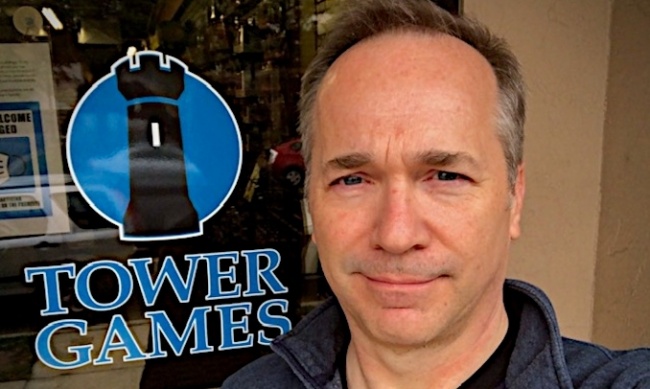
Lessons from Store Identity to Avoiding Panic Decisions
Posted by Jim McLauchlin on October 15, 2021 @ 3:29 am CT
MORE GAMES
'A Villainous Halloween' In-Store Event
August 15, 2025
Wizards of the Coast announced A Villainous Halloween , a new Magic: The Gathering Commander in-store WPN event.
Base Game, Expansions, Accessories
August 15, 2025
Asmodee will release The Witcher: Path of Destiny core game, expansions, and accessory pack.
MORE COLUMNS
Column by Scott Thorne
August 11, 2025
This week, columnist Scott Thorne notes a new twist in the Diamond Comic Distributors saga and shares his thoughts on the Gen Con releases that will make the biggest impacts.
Column by Jeffrey Dohm-Sanchez
August 7, 2025
ICv2 Managing Editor Jeffrey Dohm-Sanchez lays out the hotness of Gen Con 2025.



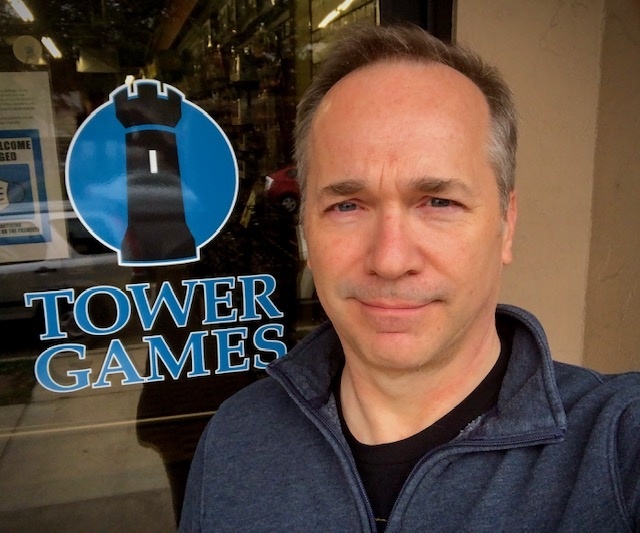
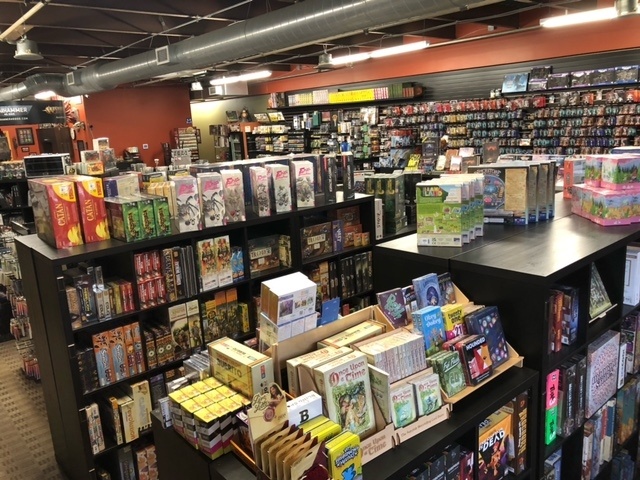

 View Gallery: 5 Images
View Gallery: 5 Images 